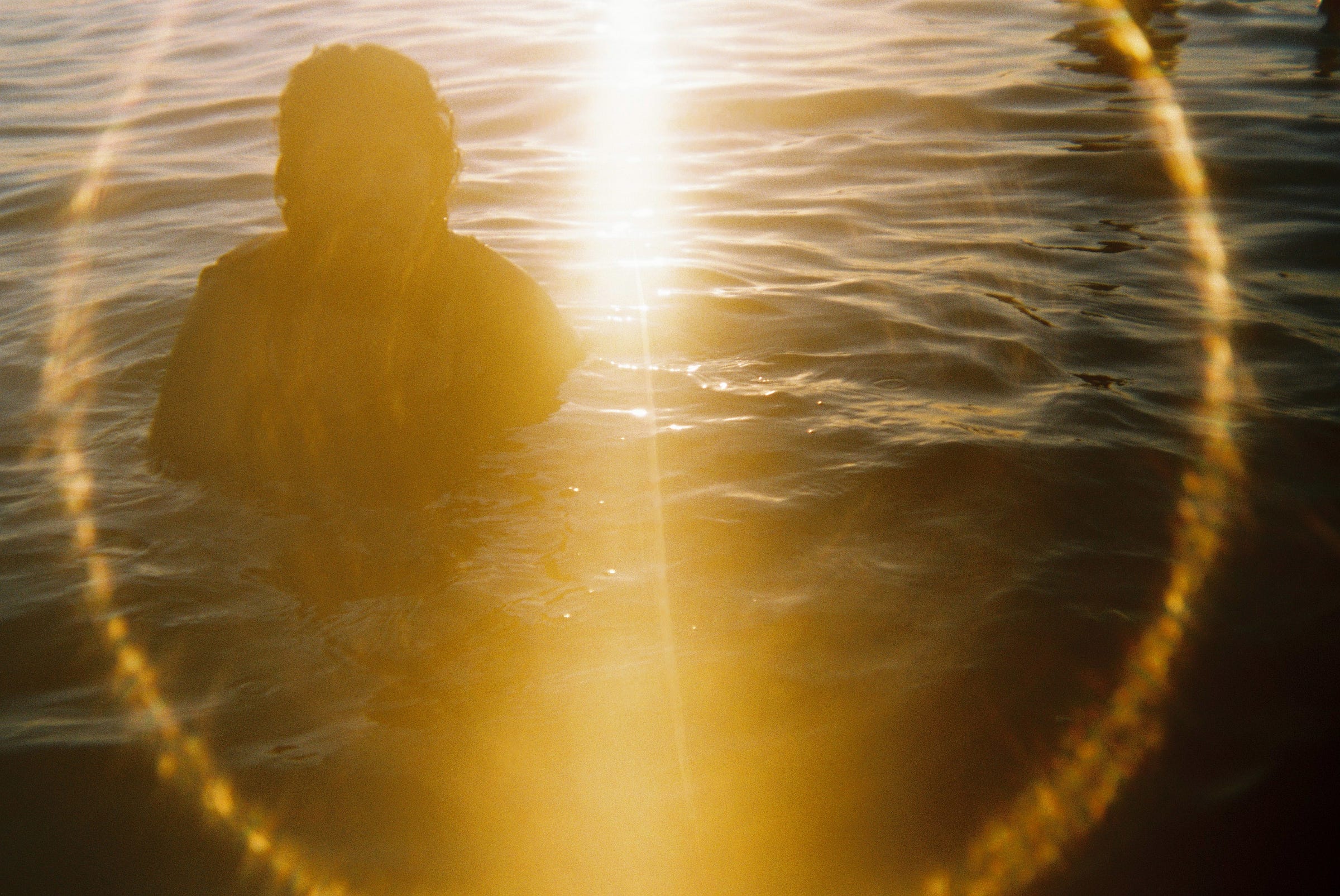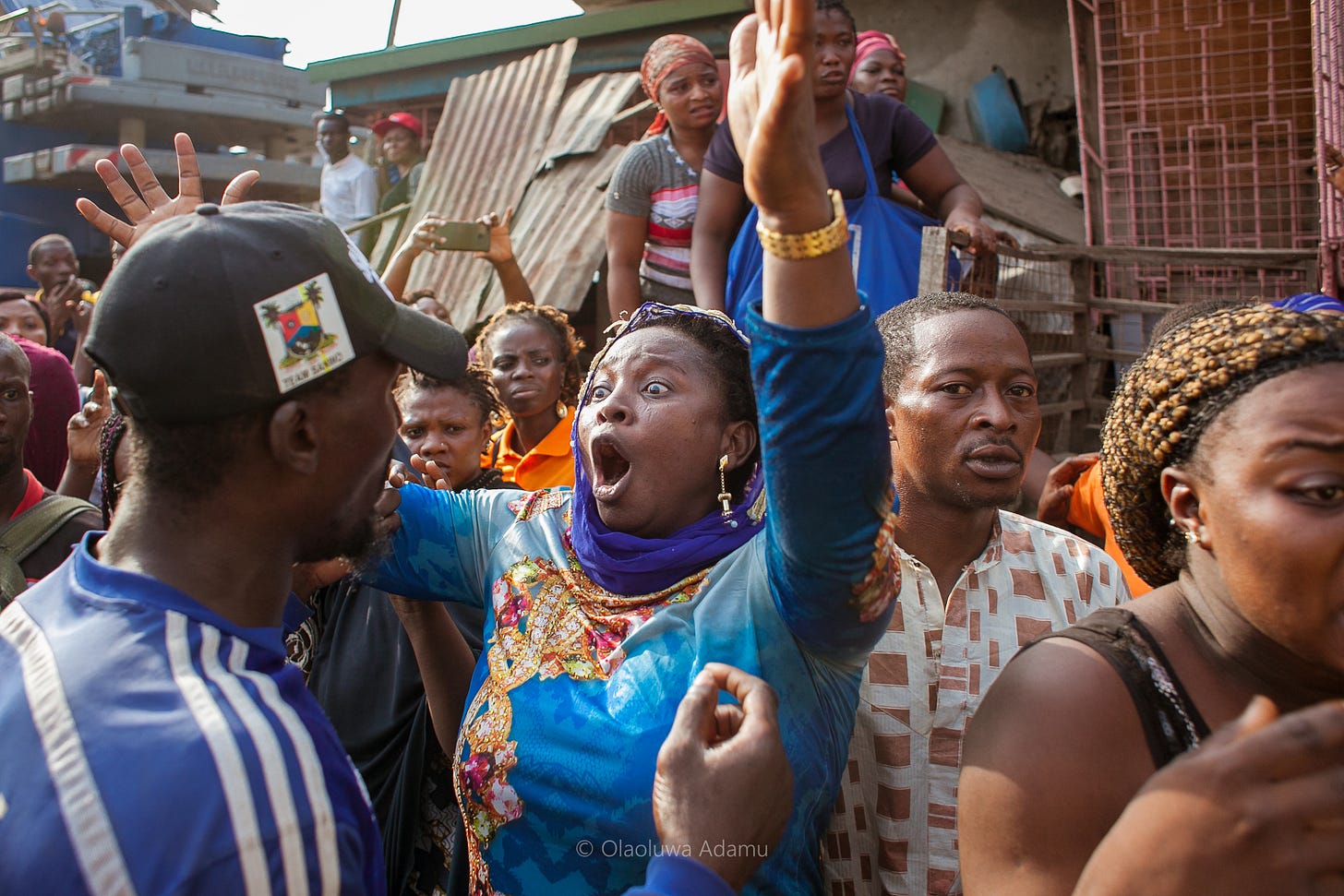A scene set in blue: the sky and river and road. Even the house is cast with a tint of azure. The road is pictured at a point from which it inclines into a bend. When you round the corner, you arrive at the house, from which you can stare down at the river, which looks back up with tides of omniscience. The scene is blue with a predawn darkness, against which the lit rooms shine with a dangerous hint of solitude, and now you’re alone on an island.
Verity FitzGerald: “The way we communicate through images is always evolving.”
This photograph was taken on Robben Island, 11km off the coast of Cape Town. This infamous island is most known for the detaining of political prisoners during Apartheid and the place where Nelson Mandela spent the majority of his 27 year imprisonment. Prior to this it served as a leper colony and a mental hospital, amongst other things.
I spent many nights on the island, staying with some of the residents of the island. I was curious about the island at night, how it presented itself in the dark and during a state of flux—dusk and dawn—like the changing of a tide. I explored the island at its most isolated hours and took this photograph just before dawn. This building is “Alpha 1,” the island's only shop and cafe which is situated at the south, facing the mainland and Cape Town's big city lights.
Those nights on Robben Island, alone and free to roam as I liked, were both eery and magical—a very intimate experience. The history of the island weighed heavily on me and seeing this one lonely building gazing back at the mainland as dawn broke, felt poignant.
My approach to photography is strongly informed by my background in the History of Art and is rooted in research. It can be a bit of a tug of war between the slowness of this approach and the impulse of visual intuition.
I think that visual language is global and the way we communicate through images is always evolving.
Two other photographs by Verity FitzGerald
About Verity FitzGerald
Verity FitzGerald is a Cape Town-based photographer whose work is deeply rooted in history and research. “I’m curious about spaces that hold memory and the interconnectivity between individual and collective memories,” she says. “In all of my work I consider the evolution of cultural landscapes, and with a multilayered approach I play with the fluidity of time and memory.” See more of her work on her website, and Instagram.
Last Week — Olaoluwa Idris Adamu
I took the photograph in Itafaji, Lagos Island, Nigeria, about three days after a building collapsed on Mercy Street.
The photo sums up the whole accident of that period. It has a cause and effect feel to me. It raises questions that beg to be answered.
Read More: Itafaji
Support TENDER PHOTO
Tender Photo is entering its second year, and I need your help to increase its quality and visibility. Please complete this survey, which should take a couple minutes of your time. Thank you for your kind attention.
This is the 45th edition of this publication. The newsletter can also read on web (best for viewing images), and via the Substack iOS/Android apps. Every week I feature one photograph and the photographer who took it: you’d read a short caption from me, and a statement from the photographer. My goal is to support early to mid-career African photographers by engaging with their work. If this newsletter was shared with you, consider subscribing, or forward to a friend.








If I lived in the house by the sea. I would be home by now. The road curving away from the house goes somewhere too. But If i lived in this house, with the lights on, then I would be home.
Wonderful edition as always. Thanks for sharing <3